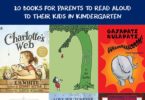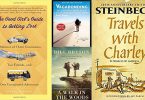The Renaissance Era was a period of huge cultural advancements. It began in Italy and spread throughout the length and breadth of Europe. The Renaissance had lasting effects on art, literature and the sciences. Here are 10 notable works of fiction from this era.
Hamlet by William Shakespeare
There are many reasons why Hamlet remains Shakespeare’s finest works and the greatest plays of all times. This tragic drama written somewhere between 1599 and 1602, keeps oscillating between the extreme sides of the emotional conflicts. The essence of vengeance along with many other compelling elements, make this an eternal masterpiece.
The Prince by Niccolo Machiavelli
Written in the 1500s, this classic explores power at various stages – its attainment, the upholding and utilization. Machiavelli showcases his abilities in establishing the skills in State art through his writing. This political treatise continues to be a best-seller across various languages and has been translated into English by Rufus Goodwin.
Don Quixote by Miguel de Cervantes
Regarded as the most influential work of Spanish literature, it was published in two volumes in 1605 and 1615. The story follows the exploits of Alanso Quixano, under the name of Don Quixote who decides to become a knight-errant along with his squire, Sancho Panza. It is regarded as the first modern novel due to the liberal literature and its experimentation.
King Lear by William Shakespeare
Originally drafted in 1605 or 1606, this classic tragedy by Shakespeare recounts the descent of King Lear, who bequeaths his kingdom to his two unfaithful daughters thereby triggering tragic consequences. Bereft of everything, he finally realizes the unconditional love of his third daughter, only to meet a tragic end.
Paradise Lost by John Milton
With its first version published in 1667, this is an epic poem by Milton written in blank verse. Consisting of ten books with over ten thousand lines of verse, it was followed by a second edition (1674) arranged over twelve books. The central theme speaks of fall of man resulted by Satan’s temptation of Adam and Eve. This is considered to be Milton’s major work.
Utopia by Sir Thomas More
Classified under socio-political satirical fiction, this work by More was published in 1516 in Latin. Written in the frame-narrative style, the book speaks of a fictional island and various social, religious and political customs practised in it. Presently, it has come to be regarded mostly as Utopian and dystopian fiction by many interpreters around the world.
Romeo and Juliet by William Shakespeare
This ever-classic play by Shakespeare is believed to have been written between 1591 and 1595. It narrates the tragic tale of two young lovers from opposing families, and their death eventually brings about reconciliation and thereby an end to the feud. This classic has been adapted into numerous plays, films and musicals till date.
The Divine Comedy by Dante Alighieri
Considered to be a prominent work of Italian literature that began in 1308, Dante’s work is a long narrative poem that took 12 years for completion. It is an attempt to understand the mystery of the Western civilisation through a journey of human experiences and their heights and depths. It is an allegorical composition of the soul’s journey towards God.
Praise of Folly by Erasmus
A counter-attack on the superstitions and other traditional practices of European society, this essay was written in 1509 in the Latin language by Desiderius Erasmus and it was printed in 1511. This was considered to be an important work of the Renaissance period that later played a pivotal role in Protestant Reformation.
Macbeth by William Shakespeare
Scholars have analysed that this work was written as early as 1599 and is a prime contemporary to other notable works of Shakespeare. The work is a dramatic interpretation of human ambition for power and the aftermaths of physical and psychological effects that are devastating. This work clearly reflects the writer’s relationship with his ruler.
If you like this booklist, share the following video:
—
Get more Booklists.
—
Which of these are your favorite books? Which ones would you like to add to the list. Let us know in the comments below.
Are you a reader who is proud of their knowledge about books? Do you have a booklist of your own? Send it to us at editor@tell-a-tale.com.




